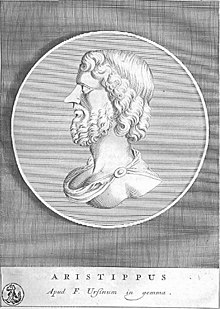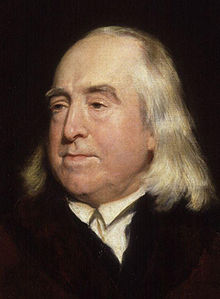Hedonism
These theories are often categorized into psychological, axiological, and ethical hedonism depending on whether they study the relation between pleasure and motivation, value, or right action.For example, if a person holds mistaken beliefs or lacks necessary skills, they may attempt to produce pleasure but fail to attain the intended outcome.Some psychological hedonists propose weaker formulations, suggesting that considerations of pleasure and pain influence most actions to some extent or limiting their role to certain conditions.Proposed examples include acts of genuine altruism, such as a soldier sacrificing themselves on the battlefield to save their comrades or a parent wanting their children to be happy.Based on his observation that most people would not want to spend the rest of their lives in this type of pleasant illusion, he argued that hedonism cannot account for the values of authenticity and genuine experience.[18][b] Ethical or normative hedonism is the thesis that the pursuit of pleasure and the avoidance of pain are the highest moral principles of human behavior.For example, philosopher Peter Singer argues that good earners should donate a significant portion of their income to charities since this money can produce more happiness for people in need.Negative consequences can impact both the individual and the people around them, affecting areas such as health, financial stability, relationships, and societal responsibilities.In everyday language, these concepts are often understood in a narrow sense associated with specific phenomena, like the pleasure of food and sex or the pain of an injury.[40] Both philosophers and psychologists are interested in methods of measuring pleasure and pain to guide decision-making and gain a deeper understanding of their causes.[42] Based on the idea that individual experiences of pleasure and pain can be quantified, Jeremy Bentham proposed the hedonistic calculus as a method to combine various episodes to arrive at their total contribution to happiness.Some simplified versions of the hedonic calculus focus primarily on what is intrinsically valuable to a person and only consider two factors: intensity and duration.Aristotle understood eudaimonia as a type of flourishing in which a person is happy by leading a fulfilling life and manifesting their inborn capacities.Ethical theories based on eudaimonia often share parallels with hedonism, like an interest in long-term happiness, but are distinguished from it by their emphasis of virtues, advocating an active lifestyle focused on self-realization.[50] A related phenomenon, the hedonic treadmill is the theory that people return to a stable level of happiness after significant positive or negative changes to their life circumstances.For instance, studies on lottery winners indicate that their happiness initially increases as the newly acquired wealth augments their living standards but returns to its original level after about one year.He argued that excessive desires and anxiety result in suffering, suggesting instead that people practice moderation, cultivate a tranquil state of mind, and avoid pain.Many other Indian traditions rejected this view and recommended a more ascetic lifestyle, a tendency common among Hindu, Buddhist, and Jain schools of thought.[65] In ancient China, Yang Zhu (c. 440–360 BCE)[e] argued that it is human nature to follow self-interest and satisfy personal desires.[68] The early Christian philosopher Augustine of Hippo (354–430 CE),[69] was critical of the hedonism found in ancient Greek philosophy, warning of the dangers of earthly pleasures as obstacles to a spiritual life dedicated to God.[82] The libertine novels of Marquis de Sade (1740–1814) depicted an extreme form of hedonism, emphasizing full indulgence in pleasurable activities without moral or sexual restraint.He introduced the idea of the hedonic calculus to assess the value of an action based on the pleasurable and painful experiences it causes, relying on factors such as intensity and duration.[85] His student John Stuart Mill (1806–1873)[86] feared that Bentham's quantitative focus on intensity and duration would lead to an overemphasis on simple sensory pleasures.[88] Friedrich Nietzsche (1844–1900)[89] rejected ethical hedonism and emphasized the importance of excellence and self-overcoming instead, stating that suffering is necessary to achieve greatness rather than something to be avoided.[103] David Pearce (1959–present) has developed a transhumanist version of hedonism, arguing for the use of modern technology, ranging from genetic engineering to nanotechnology, to reduce suffering and possibly eliminate it in the future.It investigates and compares different states of consciousness associated with pleasure and pain, ranging from joy and satisfaction to boredom and sorrow.It also examines the role or biological function of these states, such as signaling to individuals what to approach and avoid, and their purpose as reward and punishment to reinforce or discourage future behavioral patterns.[112] Economists also employ hedonic regression, a method used to estimate the value of commodities based on their utility or effect on the owner's pleasure.This position is modified by some qualitative hedonists, who argue that human experiences carry more weight because they include higher forms of pleasure and pain.[117] Elements of hedonism are also found in various forms of popular culture, such as consumerism, the entertainment industry, and the enduring influences of the sexual revolution.





Hedonism (disambiguation)pleasuremotivationegoismintrinsic valuewell-beingmoralitymoral obligationUtilitarianegoistichappinesssubjectiveparadox of hedonismhedonic treadmillCyrenaicsEpicureansancient GreeceCharvakaancient IndiaYangismancient Chinamedieval periodmodern erapsychologyeconomicsanimal ethicspsychologicalaxiologicalethicalAncient GreekhēdonēThomas Hobbesown interestaltruismposthumous fameinstrumental valueRobert Nozickexperience machinethought experimentsadisticvalue pluralistsbeautyG. E. MooreEpicurustranquil state of mindnormativejusticevirtuePeter Singerconsequentialismaesthetic valueBacchante and Infant FaunFrederick William MacMonniesdecision-makingquestionnairesbiasesNeuroscientistsneuroimagingPET scansJeremy Benthamhedonistic calculusEudaimoniaancient Greek thoughtAristotlevirtuesself-realizationAsceticismself-disciplineabstinencefastingprayermeditationAristippus of CyreneEpic of GilgameshSocratesAntisthenesCynicsStoicsLucretiusnon-existence of GodafterlifeBuddhistYang Zhumedieval philosophyAugustine of HippoThomas Aquinasbeatific visionIslamic philosophyal-Razial-FarabiAvicennaLorenzo VallaChristian ethicsAge of EnlightenmentJohn LockeJoseph ButlerDavid HumelibertineMarquis de Sadesexual restraintclassical utilitarianismhedonic calculusJohn Stuart MillHenry SidgwickFriedrich NietzscheFranz BrentanoRoderick ChisholmSigmund Freudpsychoanalytic theorypleasure principlereality principleknowledgeW. D. RossC. D. BroadRichard BrandtFred Feldmananimal welfareeffective altruismempirical evidenceAlbert CamusMichel OnfrayDavid Pearcetranshumanistgenetic engineeringnanotechnologypositive psychology
